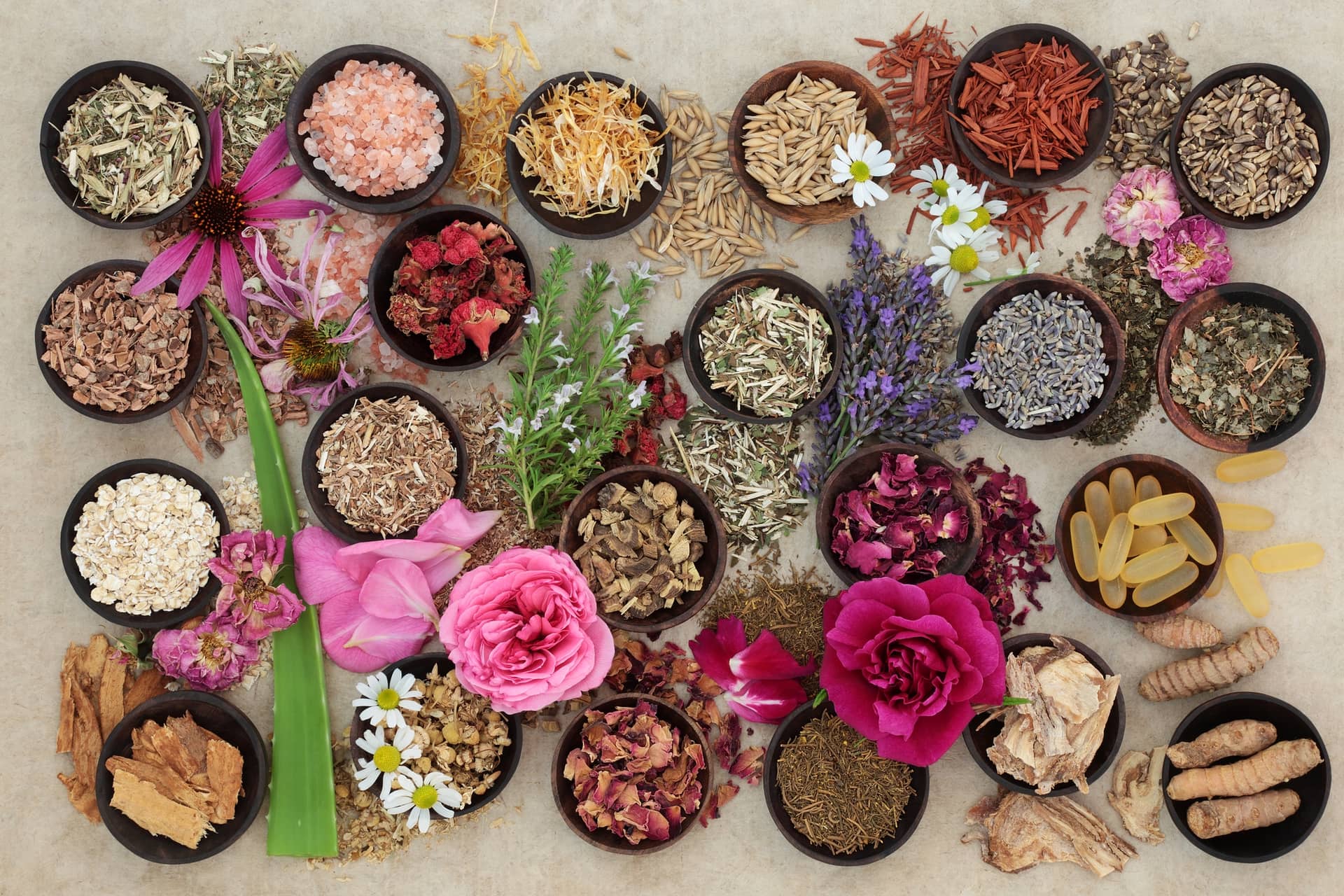
In this article, we’re talking about cellular aging.
Senescence occurs when cells are no longer capable of dividing but are still alive and active. They are reaching the end of their life. Old age, seen from the cellular level.
What this means to your skin is that it doesn’t produce enough new, healthy cells and it begins to wrinkle, sag, and look older.
However, there’s a powerful nutrient that helps offset these effects. It can halt free radical damage in the skin and restore elasticity.
This nutrient’s roots have been used for thousands of years for other health benefits, and now we’re discovering that it also helps make your skin biologically younger.
Here’s the scoop on this “cellular regenerator.”
This powerful skin-tightening nutrient is called baicalin and is found in the Scutellaria baicalensis species, commonly known as Chinese skullcap.
Its name was inspired by the base of the plant’s flower, which looks like a little dish. Other common names are huang-qin root, goldenroot, and Baikal skullcap.
Despite its unusual name, skullcap has been used extensively in traditional medicine in China, Japan, Korea, India, and Europe as well as North America. There are about 300 species of skullcaps, and each one contains various amounts of beneficial flavones and phytochemicals that help relieve a wide range of health problems.1
How Skullcap Tightens Skin
As you age and are exposed to the sun’s radiation, your telomeres (found at the ends of your DNA) naturally shorten. You probably know that telomere loss is an important marker of aging. This erosion affects your fibroblasts, which are the cells that provide structure and collagen to your skin.This is where baicalin comes in…The herbal extract helps delay and reverse the aging process of your fibroblasts by restoring their telomeres. Your skin is then able to make healthy new cells to keep itself strong, resilient, and looking younger.
In a study published by the World Health Organization, researchers blasted skin cells with sunlight-like UVA radiation. In the skin cells without baicalin, telomere lengths shortened by almost 70%. But the skin cells with baicalin were able to restore their telomeres to 64% of their original length, despite the damaging ultraviolet radiation.2 The researchers also discovered that baicalin can help stop p53 (a tumor suppressing gene) from rising when exposed to UVA radiation. When the p53 level stays low, cancer is inhibited.3 In another study, baicalin was found to help repair DNA breakage so the skin cells stay healthy and youthful.4 A reduction in damaged DNA helps increase your skin’s elasticity and firmness.
For years, drug companies have been trying to copy the benefits of baicalin in their own man-made versions. While urging you to rub their synthetic creation into your skin, they don’t telling you there’s something safer and potentially more effective… something that nature’s been producing for thousands of years.
Best Ways to Use Skullcap For Younger Skin
Liquid extracts, capsules, teas, tinctures, and root extract powders of Scutellaria baicalensis can be found in health food stores and online.Chinese skullcap should be safe, since no toxicity has been reported. Typical doses vary, depending on the form of skullcap you buy. Some sources state an oral dose of around 500 mg of the root extract is effective.5 If you begin to experience giddiness, stupor, confusion, or twitching, you’re taking too much. Just dial your dosage back. Skullcap is not recommended for pregnant and nursing mothers.6 This is a pretty standard warning for food supplements. Most of the time, the supplement is not known to be harmful, but the research simply hasn’t been conducted to make sure. Anything mother takes can end up in mother’s milk, and this fact should inspire caution.
It’s always a good idea to check with your health care provider or naturopathic physician before adding herbs to your daily regimen. That said, Chinese skullcap looks like a good way to naturally restore your skin’s health and youth.
- Skullcap: Potential medicinal crop. https://www.hort.purdue.edu/newcrop/ncnu02/v5-580.html
- Effects of baicalin on ultraviolet A-induced telomere damage in cultured human primary fibroblasts. http://search.bvsalud.org/ghl/resource/en/wprim-732227
- Primary information of p53 gene. http://www.bioinformatics.org/p53/introduction.html
- Baicalin promoted the repair of DNA single strand breakage caused by H2O2 in cultured NIH3T3 fibroblasts. https://www.ncbi.nlm.nih.gov/pubmed/12576696
- Scutellaria baicalensis. https://examine.com/supplements/scutellaria-baicalensis/
- Skullcap: Potential medicinal crop. https://www.hort.purdue.edu/newcrop/ncnu02/v5-580.html
